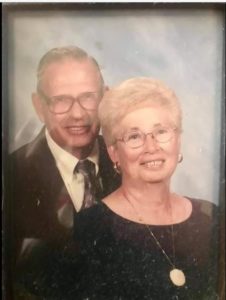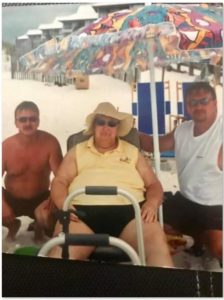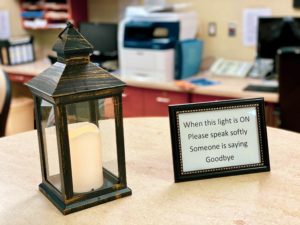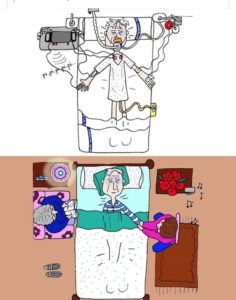Adding another Why St. Anthony’s story to our website today. This one features our Director of Nursing, Tina Eckels.
“My hospice journey began when I was just 17 years old. I had never before heard of Hospice and obviously knew nothing about the concept of Hospice. I was first introduced to Hospice while still in high school when I heard a Hospice Nurse give a talk about hospice care and what she did for the patients and families she cared for on a daily basis. I was so moved and energized by what I was hearing that I said to myself ‘I want to do that. I want to be part of that kind of caring.’ I never let go of that and have now been with St. Anthony’s for over 17 years.
I can remember caring for a woman in her late 50’s who was dying of lung cancer. While making a routine visit to her house it was apparent that she was quickly declining. Her daughter was in the living room sitting beside her mother’s hospital bed and I could tell she was having a difficult time. I said to her ‘What can I do for YOU?’ She told me that she wished she could lay with her mother and hold her the way her mother used to hold her when she was a child. I told her she absolutely could and we repositioned her mother in the bed and she climbed in the bed with her mother and help her and told her how much she loved her. Her mother died just a few days later.
About 5 years later that same daughter came up to me in the grocery store and thanked me for the care that St. Anthony’s provided to her mother and for allowing her to do what she needed to do most. She said she will always have that memory of being able to have those last few hours with her mother, just the two of them. That is what Hospice is all about! Allowing people to die with love and dignity in the place of their choosing, the way they want it to be.”
If you or a loved one is in need of the expert care hospice or palliative can provide, please call us at (270) 826-2326 or visit our website at https://stanthonyshospice.org/referral/.










